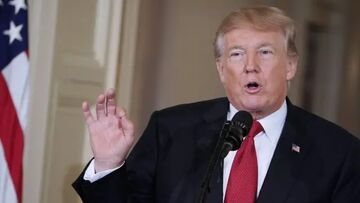TEHRAN(Bazaar) –Shireen Tahmaasb Hunter, a professor of political science at Georgetown University, tells for the foreseeable future, China and the US would avoid confrontation, especially military.
She says: “Such a confrontation would be too costly for both sides. I see more intense competition but no confrontation.”
Following is the text of the interview:
Q: The decline of American hegemony has been discussed in Western and American circles for years, and some believe that this decline began in the 1970s. Prominent American theorists such as Robert Owen Keohane, Joseph Nye and Stephen Walt have talked about this. In your opinion, what are the reasons for the decline of Hegemon?
A: The real issue is not that the US has declined but that other powers have recovered and developed. After the second world war, Europe and Japan were devastated and China was an undeveloped country. Now these powers have recovered and China has become a developed country, at least economically. The US is still the most powerful country militarily and has the largest economy. It also still has much greater soft power than China. So, the best way to describe the situation is not that the US has declined but that other powers have risen and therefore, a new balance of power has emerged.
Q: The rise of China has brought the issue of the decline of American hegemony into a new phase in recent years. What do you think the US will do to contain China in the coming years?
A: The US never had total hegemony. So far, China has been unwilling to make the expenditure in military and economic terms to compete globally with the US. In certain areas, like South East Asia, China has certain liabilities, because countries like Vietnam, among others, do not trust China. The US has certain assets that it can use to delay China's military expansion, such as banning the export of semiconductors. It has also sped up the production of microchips in the US. It could also shore up its alliances in Asia with Japan, South Korea, the Asean countries, and Australia.
Q: Some people argue that China's rise has left no other way for America but confrontation, and naturally the two countries will face bigger challenges. Do you agree with this argument?
A: I believe, for the foreseeable future, China and the US would avoid confrontation, especially military. Such a confrontation would be too costly for both sides. I see more intense competition but no confrontation.
Q: In the recent meeting between Biden and Xi Jinping in Bali, Indonesia, on the sidelines of the Group of 20 summit, the two sides emphasized cooperation while competing and depended the future of the world on the cooperation of these two countries. What is the importance of this meeting and what direction will it take to manage the challenges between the two countries?
A: The meeting between Presidents of China and the US shows that both sides are aware of the risks of confrontation and are trying to keep their competition within some limits.
Q: It is argued that in the new world order, regional powers like Iran are of special importance. Do you agree with this argument? If you agree, what is the reason for the importance of regional powers in this order?
A: The engagement of regional countries is likely to remain at the regional level. None of the regional states, including India and Turkey, are able to operate globally. Their clout also depends on their ties to key international players. Among such states, Iran is in a weak position. Its policies in the last four plus decades have resulted in poor economic conditions and loss of international prestige and influence. Iran lacks the instruments, especially economic, necessary for a significant regional and international role.















نظر شما